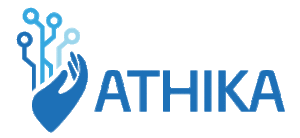AI Technology Diagnoses COVID-19 “ in minutes”
Pioneering Artificial Intelligence (AI) technology, developed by experts at University of the West of Scotland (UWS), is capable of accurately diagnosing Covid-19 in just a few minutes. The groundbreaking programme is able to detect the virus far more quickly than a PCR test; which typically takes around 2-hours. The team now plans to expand the study, incorporating a greater database of x-ray images acquired by different models of x-ray machines, to evaluate the suitability of the approach in a clinical setting.

